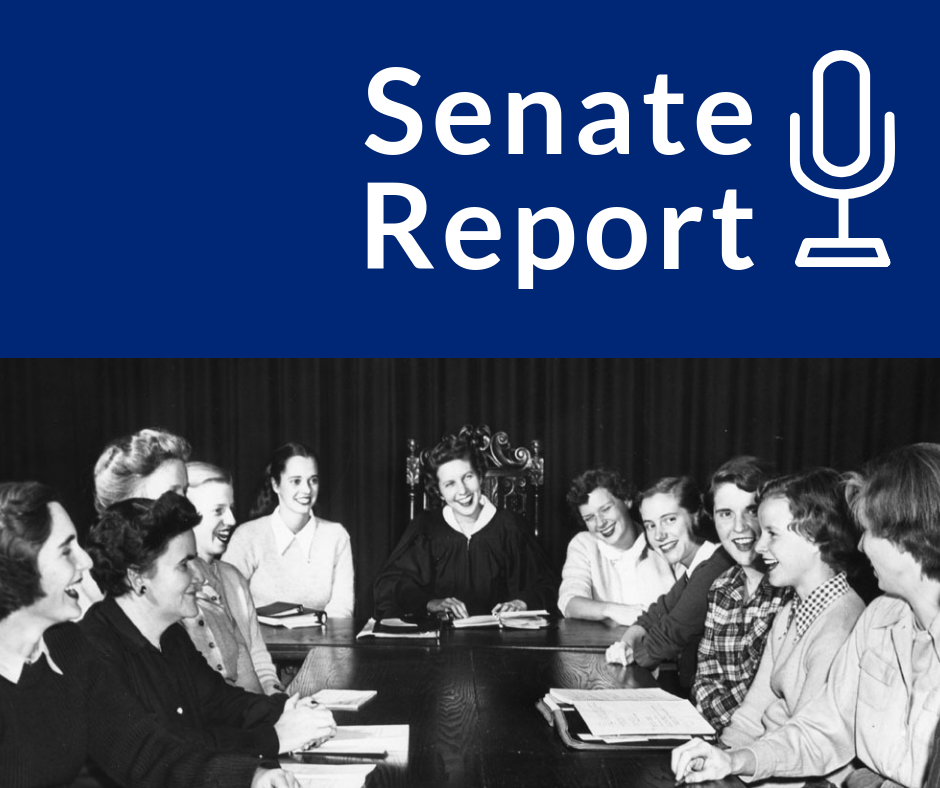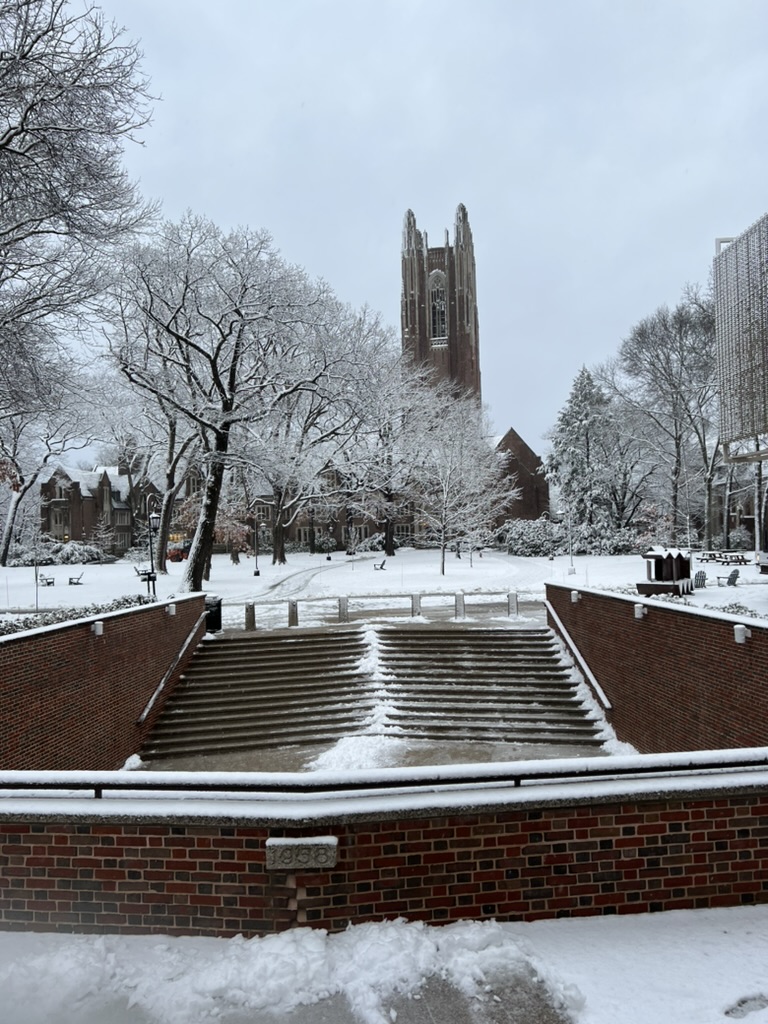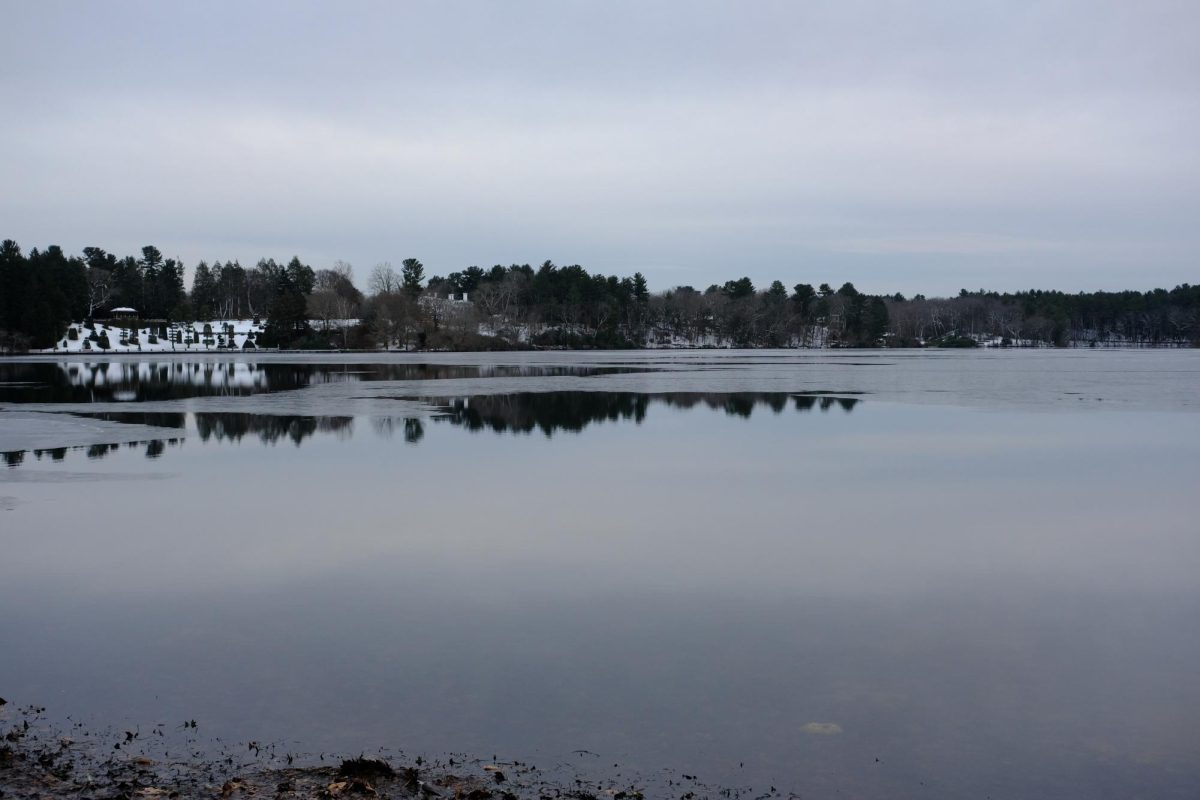I am excited to inaugurate this monthly column from the Dean of Students in The News. I hope that this will provide an additional venue for communication between students and the Dean’s Office.
As you know, I am in the Dean’s role on an interim basis. Despite having spent decades on the faculty and in a variety of administrative roles, I am finding that this position gives me a whole new view of the College. It has allowed me to see students’ lives here in their totality, not separated into “classroom” and “out of classroom” experiences. It has also allowed me to see close up the extraordinary work of Student Life and other staff. It has been a privilege to work directly with students – through College Government and on committees such as the one finalizing a plan for paying stipends to RAs and HPs, as well as on less formal occasions.
One of the clear ways in which the priorities of students and faculty or staff differ is timeframe. Students are here for four years and obviously want change to happen in the areas where they are invested within those years. Faculty and staff have seen that academia is a pretty slow-moving sector of society, where proposals generally need discussion and feedback from all constituencies, and where process is important for legitimacy. Each group could learn something from the other: students who spend the time working through formal committees and channels while at Wellesley will be better prepared for leadership and political roles after graduation, and faculty and staff might learn a little impatience to achieve goals that have been unmet or achieved only in part for many years.
We often speak of the “Wellesley bubble,” but if there ever were a boundary creating such a space it is increasingly porous. We all bring our out-of-the-bubble selves to Wellesley, are affected by events in the larger world, and are unable to ignore these events. What we can do is to try to model a more perfect community within our imperfect bubble. The ideals of honesty, integrity, and respect guide our attempts.
I am very proud of the efforts within Student Life and in partnership with other offices on campus to create space and opportunities for candid conversations, interfaith dialog, and educational outreach beyond our own circles. I am also proud of our students for their leadership in bringing the community’s attention to systemic inequities and ways to address and overcome them. These efforts will be expanded with unconscious bias training – already underway for many faculty and staff, and to begin for student leaders next year – and widening Dialog Circles for in-depth education and discussion. As Dr. Lori Patton Davis reminded us at one of the events for Black History Month, conversations about social justice will be difficult – and this is true for conversations about all deeply-ingrained beliefs – but that doesn’t mean that they should be avoided. One of our jobs as educators – whether in the classroom or in the co-curricular realm – is to open up and provide context for difficult discussions, and to equip students with skills to participate in such conversations with confidence once they leave Wellesley. I look forward to working together here on campus for the remainder of my term, and in welcoming our students back as alumnae, when I hope that they will see the college’s continuing progress towards fulfillment of our mission.





